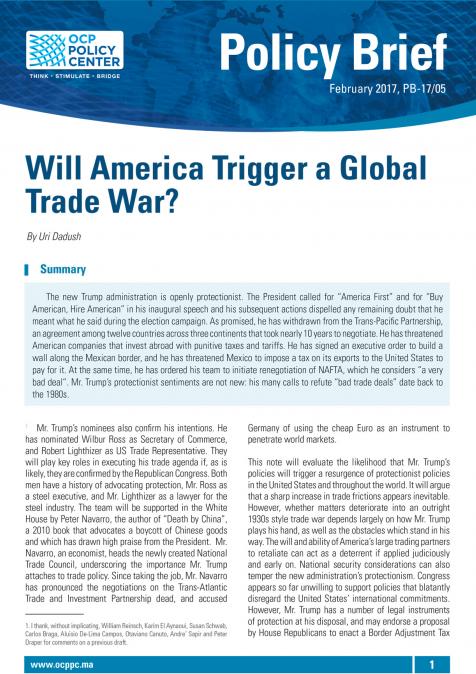Publications /
Policy Brief
The new Trump administration is openly protectionist. The President called for “America First” and for “Buy American, Hire American” in his inaugural speech and his subsequent actions dispelled any remaining doubt that he meant what he said during the election campaign. As promised, he has withdrawn from the Trans-Pacific Partnership, an agreement among twelve countries across three continents that took nearly 10 years to negotiate. He has threatened American companies that invest abroad with punitive taxes and tariffs. He has signed an executive order to build a wall along the Mexican border, and he has threatened Mexico to impose a tax on its exports to the United States to pay for it. At the same time, he has ordered his team to initiate renegotiation of NAFTA, which he considers “a very bad deal”. Mr. Trump’s protectionist sentiments are not new: his many calls to refute “bad trade deals” date back to the 1980s




